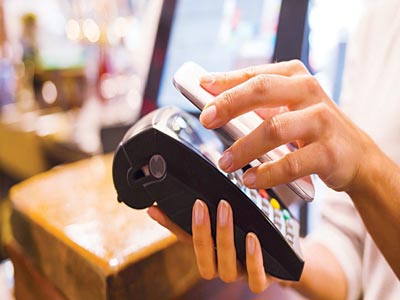
In our current fast-paced world, having an effective means of accepting payments isn’t just a convenience but a necessity.
From traditional payment methods such as bank transfers and debit cards to modern solutions like digital wallets and cryptocurrencies, businesses now have various payment solutions.
With so many options in our fast-paced world, you might wonder how to choose the right digital payment solution.
In this guide, we’ll go through essential factors to consider when selecting a digital payment platform, such as the Moniepoint Business banking app, that’s reliable, secure, and scalable for your business.
What is a Digital Payment Solution?
A digital payment solution is any system or platform that enables the electronic transfer of money in exchange for goods or services. These solutions are essential in today’s digital economy, making it easier for businesses and consumers to complete transactions quickly and securely.
Whether you’re making an online purchase, processing an in-store payment, or handling internal business payments, digital payment solutions provide a seamless way to move money.
They also support various payment methods, including credit and debit cards, mobile wallets, bank transfers, and lots more. By offering these options, they give businesses the flexibility to cater to diverse customer preferences.
Plus, they are incredibly versatile and can be applied in many contexts. From online shopping and mobile apps to subscription services and point-of-sale (POS) systems, they are designed to make transactions more efficient and convenient.
They come in various forms, which we will be looking at next.
Types of Digital Payment Solutions
Digital payment solutions come in many forms. Each option has its strengths and is ideal for different business needs.
Point-of-Sale (POS) Systems
Reliable point-of-sale terminals, such as Moniepoint POS terminals, allow you to receive payments using any debit card. POS systems are designed to handle in-person transactions, making them essential for brick-and-mortar businesses.
Customers prefer this widely accepted payment method because it is convenient and doesn’t require them to carry around large wads of naira notes. In addition to processing payments, many modern POS systems have added features, making them versatile tools for business management.
Mobile Wallets
With mobile wallets, your customers can pay for goods or services by tapping their phones or using a digital wallet or mobile banking app.
Customers can make payments through apps like Apple Pay, Google Pay, and Samsung Pay, enabling quick and easy transactions.
Payment Gateways
Payment gateways have become the norm in our digital business world. Business owners can use them to process online transactions, acting as a bridge between the customer’s payment method and the business’s bank account.
These systems have top security features that encrypt sensitive financial data to ensure safe transactions and offer protection against fraud. Popular payment gateways include Monnify, PayPal, Stripe, and Square, which online retailers and businesses widely use.
By integrating these gateways into your business’ websites or mobile apps, you can provide customers with a smooth, secure, and efficient checkout experience.
Peer-to-Peer (P2P) Payments
Peer-to-peer (P2P) payment systems allow individuals to transfer money directly to one another using mobile applications.
These services have become increasingly popular for personal transactions, but businesses can also benefit from them in specific cases, such as accepting payments from customers in certain regions or invoicing clients.
P2P payments are simple, fast, and secure, making them useful tools for individuals and businesses seeking an easy way to manage small, direct payments.
All-in-One Payment Solutions
All-in-one payment platforms like Moniepoint offer a comprehensive solution by combining various payment tools into a single, unified system. These platforms typically integrate POS systems, payment gateways, and mobile wallets, providing businesses with a streamlined approach to managing all their payment needs.
All-in-one solutions are especially beneficial for businesses looking to simplify their operations by having a single platform to manage payments, track transactions, and handle financial data in one place. This type of solution is perfect for businesses that want efficiency and ease of use without juggling multiple systems.
What are the Key Features to Look for in a Payment Solution?
If you are wondering what to look out for when choosing a payment solution for your business, here are some features to consider;
Ease of Integration
For any digital payment solution to be effective, it must integrate seamlessly with your existing systems. Whether you have an e-commerce platform, a physical POS system, or a financial software tool, look for a solution that integrates easily without requiring extensive custom coding or technical expertise.
Customer Support
Reliable customer support is often overlooked when choosing a digital payment solution. When issues arise, you’ll need a responsive support team to quickly resolve technical or transactional problems.
Ensure the payment solution provider offers 24/7 customer support, preferably with multiple contact methods (phone, email, live chat).
Security Features:
Security is a major concern when handling sensitive financial data. Look for a payment platform with end-to-end encryption, tokenization, and advanced fraud detection systems.
Additionally, consider platforms that are compliant with CBN’s security standards, such as PCI-DSS (Payment Card Industry Data Security Standard) and GDPR (General Data Protection Regulation).
Moniepoint, for instance, strongly emphasizes secure transactions, ensuring that all customer and business data is protected with cutting-edge security measures.
Scalability
As your business grows, your payment processing needs will likely evolve. Therefore, choosing a platform that can scale with your business is crucial. Whether you’re expanding into new markets, increasing your product offerings, or processing more transactions, your payment solution should be able to handle your future requirements.
User-Friendliness
Another important factor to consider is ease of use. Your team and customers should be able to navigate the platform without extensive training. A user-friendly dashboard, easy-to-understand transaction reports, and a simple checkout process will help optimize your workflow and reduce frustration.
Compliance with Regulations
Compliance with financial regulations is a critical aspect of selecting a digital payment solution. Depending on your location and industry, you may be subject to various local and international laws regarding payment processing, taxation, and data privacy.
Choose a solution provider that fully complies with the appropriate regulations.
Transaction Fees and Costs
Understanding the cost structure of a digital payment solution is necessary. While some platforms offer low upfront fees, others may charge high transaction fees, monthly maintenance fees, or hidden costs that can add up over time.
Assessing the pricing structure based on your business size and transaction volume is important. Some platforms may be more cost-effective for small businesses, while others may be better suited for ventures with high transaction volumes.
Conclusion
Your business’s long-term growth, efficiency, and security depend majorly on using the right digital payment solution.
With everything you need in one place, you can focus on what matters most: growing your business and delivering excellent customer experiences.






